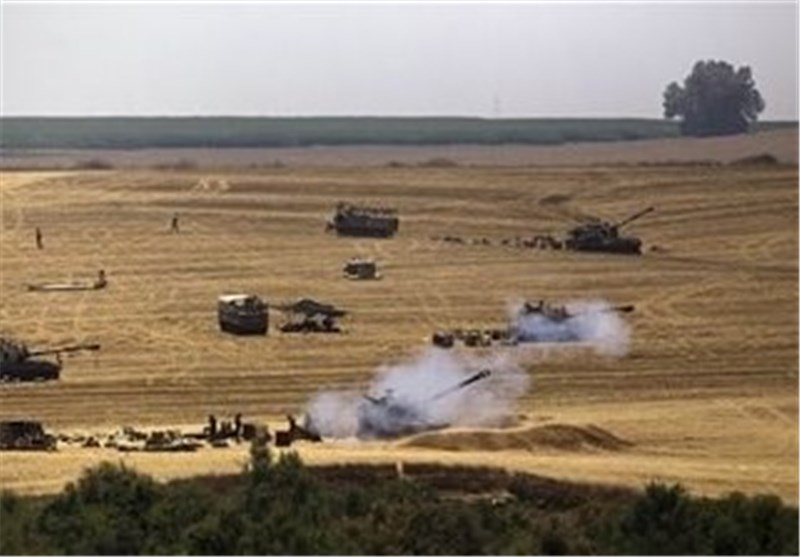Gaza Food Supplies: Israel Announces Resumption Of Aid

Table of Contents
The Humanitarian Crisis in Gaza and Food Insecurity
The food crisis in Gaza is severe and multifaceted. Years of blockade, recurring conflict, and crippling economic sanctions have severely limited access to essential food supplies, leading to widespread malnutrition and food shortages. The impact is devastating, particularly for vulnerable groups like children and the elderly.
- Extent of the Crisis: A significant percentage of Gaza's population, estimated to be over 50%, experiences food insecurity, lacking consistent access to enough nutritious food for an active and healthy life.
- Food Shortages: Basic staples like wheat, flour, rice, and cooking oil are frequently in short supply, forcing families to make difficult choices about what little they can afford. Fresh produce and protein sources are often scarce and unaffordable.
- Impact on Vulnerable Groups: Children are especially vulnerable to malnutrition, which can lead to stunted growth, developmental delays, and increased susceptibility to disease. The elderly also face significant challenges accessing adequate nutrition due to limited mobility and resources.
Israel's Announcement: Details and Implications
Israel's recent announcement concerning the resumption of food aid to Gaza represents a significant development. While the specifics may vary, the commitment involves delivering crucial food supplies to alleviate immediate needs. The precise amount and types of food aid remain subject to confirmation and may depend on the evolving security situation.
- Amount of Aid: The pledged amount of aid, while potentially substantial, needs to be analyzed relative to the overall needs of the population.
- Specific Food Items: The type of food provided often includes staples like wheat, flour, rice, and other essential non-perishable items. However, the availability of fresh produce and protein-rich foods remains a critical concern.
- Mechanism for Aid Distribution: The distribution mechanism is crucial. Efficient and transparent systems are needed to ensure equitable access and to prevent exploitation or diversion of aid.
- Timeline for Aid Delivery: The timely delivery of aid is paramount, as delays can exacerbate existing suffering and worsen the humanitarian situation.
Impact on Gaza's Food Security and the Population
The resumption of aid will undoubtedly have a positive, albeit potentially short-term, impact on Gaza's food security. It can alleviate immediate hunger and reduce malnutrition rates among the most vulnerable. However, the long-term implications depend on several factors.
- Expected Improvement in Malnutrition Rates: Increased food availability can lead to a decline in malnutrition rates, particularly among children.
- Potential Challenges in Aid Distribution: Obstacles such as logistical challenges, bureaucratic hurdles, and security concerns can impede efficient aid distribution.
- Views of International Aid Organizations: Organizations like the UN and other NGOs closely monitor the situation and provide crucial assessments of the aid's effectiveness.
- Opinions of Gazan Residents: Understanding the perspectives of Gazan residents is vital to gauge the impact on the ground and identify further needs.
Challenges and Long-Term Solutions for Gaza's Food Security
Even with the resumption of aid, several fundamental challenges threaten Gaza's long-term food security. Addressing these issues requires comprehensive, sustainable solutions.
- Need for Investment in Local Agriculture: Supporting local farmers and investing in sustainable agricultural practices is vital for long-term food self-sufficiency.
- Importance of Economic Empowerment: Creating economic opportunities and supporting local businesses can improve the livelihoods of Gazans and their ability to access food.
- Role of International Cooperation: International cooperation and sustained financial support are essential for implementing long-term solutions.
- Addressing Political Barriers: Resolving underlying political issues and easing the blockade are fundamental to achieving lasting food security in Gaza.
Conclusion
The resumption of Israeli food aid to Gaza offers a temporary reprieve from the devastating food crisis, offering a potential lifeline for many. However, this aid alone is insufficient to address the root causes of food insecurity. Long-term solutions require a multi-faceted approach that addresses economic hardship, improves agricultural practices, and fosters sustainable development. The urgent need to resolve the political barriers and ensure sustained humanitarian assistance cannot be overstated. Learn more about the ongoing crisis and consider supporting organizations working tirelessly to improve Gaza food supplies and contribute to overall humanitarian efforts. Your support can make a difference in ensuring food security and a brighter future for the people of Gaza. Let's work together to find lasting solutions to the Gaza food crisis.

Featured Posts
-
 Investing In Quantum Computing Stocks Rigetti Rgti And Beyond In 2025
May 20, 2025
Investing In Quantum Computing Stocks Rigetti Rgti And Beyond In 2025
May 20, 2025 -
 Gretzkys Loyalty Examining The Legacy Amid Trump Ties
May 20, 2025
Gretzkys Loyalty Examining The Legacy Amid Trump Ties
May 20, 2025 -
 Ivoire Tech Forum 2025 Abidjan Plateforme Internationale Pour La Transformation Numerique
May 20, 2025
Ivoire Tech Forum 2025 Abidjan Plateforme Internationale Pour La Transformation Numerique
May 20, 2025 -
 Comprendre Le Systeme De Numerotation Des Batiments Dans Le District D Abidjan
May 20, 2025
Comprendre Le Systeme De Numerotation Des Batiments Dans Le District D Abidjan
May 20, 2025 -
 I Tzenifer Lorens Mia Akomi Kori Gia Tin Agapimeni Ithopoio
May 20, 2025
I Tzenifer Lorens Mia Akomi Kori Gia Tin Agapimeni Ithopoio
May 20, 2025
